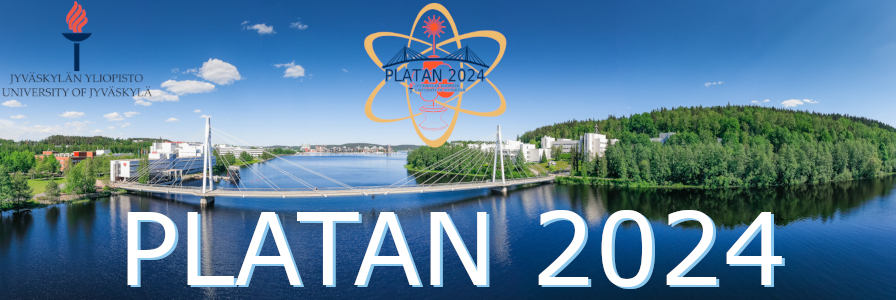Speaker
Description
Atoms of different elements possess distinct spectra which serve as their fingerprints. Beyond providing information about the internal atomic and nuclear structure, knowledge of their spectra has allowed their identification in extragalactic stars and even neutron star mergers. However, very little is known about elements beyond fermium ($_{100}$Fm), which can only be synthesized in trace amounts in nuclear fusion-evaporation reactions. With scarce production yields below one atom per second, traditional fluorescence methods are insufficient for the spectroscopy of these elements. Given the need for alternatives, a new method called Laser Resonance Chromatography (LRC) was conceived, which doesn’t rely on detection of fluorescence. In LRC, after resonant excitation, ions in different electronic states are separated via their distinct mobilities in buffer gas. Here, with an experimental setup we recently commissioned, we present results from the first demonstration done on lutetium ($_{71}$Lu). We studied a ground-state transition in Lu$^+$ ions, and the hyperfine structure constants and isotope shifts that we derived for it are in excellent agreement with values known from laser-induced fluorescence. With lutetium being an electronic homologue of the element lawrencium ($_{103}$Lr) for which not even a single atomic transition has been reported till date, this concretely demonstrates the viability of our method and opens a new avenue for laser spectroscopy of the heaviest elements.

